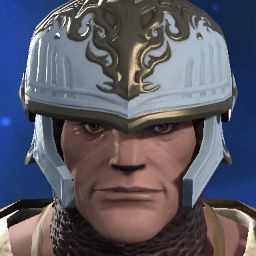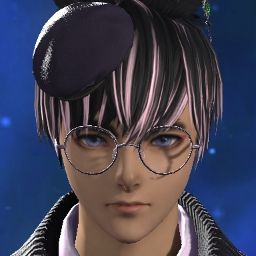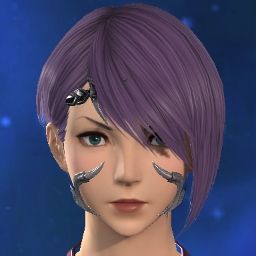-
02-19-2019 09:49 AM #31Player

- Join Date
- Sep 2013
- Posts
- 10,051
- Character
- Matthieu Desrosiers
- World
- Cerberus
- Main Class
- Reaper Lv 90
(0)
-
02-19-2019 09:56 AM #32
I'm not sure whats confusing to you?
That not everyone is under the impression that we - or the Eorzean Alliance, specially the Alliance, specially Limsa! - is some sort of shiny hero?
While thinking about this a little bit more, I recalled this MSQ with Ga Bu. You remember him? The little kobold who summons Titan because he learns that his parents were sacrificed by the kobold priests?
Do you remember what happens to him - and even more important what should have happend to him? Because the only reason hes still alive is that Alisae protected him (and still hopes we'll find a way to save him). The Maelstrom wanted to execute the little kobold kid instead of trying to help.
There are good people in this world, trying to do the right thing. But its damn sure not always those people who are telling us what "the right thing" is. The Alliance isnt made up of all good people - but also of those who'd rather see the beast tribes slaughterd, by people with almost racist-behaviour (looking at you, Gridania - yes, yes, elementals, I know), by people who are dragging peacefully living tribes into their wars...
Once of the cutscenes that left a big impression on me is a very early one, in ARR. Its not much, but its Y'shtola calling Merlwyb out in regards to the kobolds summoning Titan (I think?) and pointing out that those kobolds might be only defending themselves against Limsa... and that Limsa - and we - is the real aggressor here.(3)
-
02-19-2019 10:08 AM #33Player

- Join Date
- Feb 2015
- Location
- Uldah
- Posts
- 1,537
- Character
- Desia Demarseille
- World
- Sargatanas
- Main Class
- Dark Knight Lv 90
To pont something out, White Magic =/= good magic where Black Magic =/= Evil Magic. The lore surrounding the war of the magi does point out hat while the Amdapori were supposedly supposed to be living one with nature (something like that) and keeping things in balance (where Mhachewere more about gaining power and exploring magic). However, the Amdapori ended up draining and destroying much of the land by building their own magical constructs and society and were in some ways no different that Mhache. The theme boils down to its not necessarily the nature of magic itself that is good or evil, but how its used. Along those same lines of thinking, the cause of the Warrior of Light ended up almost destroying a world in the MSQ, so it stands to reason that being a Warrior of Light isnt necessarily a 'good' thing. There can be to much light in the world, so to speak.
Who knows though what the MSQ will be about.(1)Last edited by Melichoir; 02-19-2019 at 10:10 AM.
-
02-19-2019 10:30 AM #34Player

- Join Date
- Sep 2013
- Posts
- 10,051
- Character
- Matthieu Desrosiers
- World
- Cerberus
- Main Class
- Reaper Lv 90
Mm. It's a matter of looking at the story as a whole. I'm not one for saber rattling and chest thumping in favour of any given faction. I prefer to examine the story as it is when all the puzzle pieces are fixed together. At a glance, it's easy to write off the likes of Yotsuyu as unhinged and unworthy of sympathy but when you dig deeper it's easy to see why she became that way. It didn't happen over a trivial spat - it was a direct consequence of the abuse she received from those around her and the flaws of the society she was raised in.
It's precisely why I find myself invested in FFXIV over the other MMO's on the market. It's a lot more heavily story driven and all the little details come together very smoothly.(2)
-
02-19-2019 10:38 AM #35
-
02-19-2019 10:39 AM #36Player

- Join Date
- Sep 2015
- Location
- Ul'dah
- Posts
- 56
- Character
- Ben Fukuro
- World
- Phoenix
- Main Class
- Machinist Lv 90
People who assume that we're gonna do something completely outrageous or special have probably never played the MSQ or skipped all the way through it. They would NEVER do something radical that changes how we/our character acts. NEVER. We'll probably fight some light/holy themed monsters and that'll be it.
(0)
-
02-19-2019 10:53 AM #37
-
02-19-2019 12:44 PM #38
Hopefully more quests that involve slapping Moogles,Kobolds,Namazu,popotoes who ask to fetch tea leaves and any NPC that wants us to fetch dung for them.
Not okay with terrorising Beast Tribes or killing the WOL.
Would like to smack the Eorzean Alliance a little for their double standards/hypocrisy(eg: The treatment of Beast Tribes), for all the fetch/delivery quests/travel all across the world,seemingly unending monologues.(0)
-
02-19-2019 12:47 PM #39
-
02-19-2019 01:13 PM #40Player

- Join Date
- Nov 2017
- Posts
- 14,057
- Character
- Aurelie Moonsong
- World
- Bismarck
- Main Class
- Summoner Lv 90
I've long been hesitant about what becoming the "Warrior of Darkness" could entail. Either it does horrible things to our character and how they act, or it doesn't really change anything, and it's just dark and edgy for the sake of being dark and edgy.
I hope that this is a temporary necessity, and a stepping-stone to finding a permanent balance between Light and Dark. And that they handle the concept very carefully.
I've just been back through that story, and it's not what happened. The first part, yes, but Alisaie never has to protect him from the big bad Maelstrom wanting to kill him. (Quest scripts: Part 1, Part 2, missing some cutscenes though.)
After the summoning, Ga Bu is simply catatonic, and nobody is sure whether he's been tempered or is just in deep shock. It's the Alliance's policy that anyone who has been tempered must be executed, and Alisaie is horrified to see what this actually means first-hand. It's still only a question of whether they'll have to do it, if it becomes clear that he is indeed tempered, but the prospect is there - and so Alisaie is desperate to confirm that he's "still himself" and the order won't have to be carried out.
Even without confimation, the Maelstrom are willing to look after Ga Bu until it can be sure what has happened to him. "We'll not soon forget that he risked his neck to warn us of Titan", Commander Bloeidin says, "and neither will Maelstrom Command."
And as we see at the end of 4.4, they're still looking after him, although he doesn't seem to have recovered any further.
Whatever happens with him, it seems intended as a step towards a shift in the Alliance's thinking - a hopeful sign that tempering might not be permanent, and we'll be able to find a way to break through it.
It also parallels nicely with Alphinaud's determination to rescue Estinien from Nidhogg's possession, rather than accepting that it would be necessary to kill them both together.
Drowning is never brought up as part of the plan, and nobody on either side mentions casualties because of it. My understanding was that it was intended to flood the grounds and make it difficult for the Garleans to move troops freely and defend the castle - trapping them in the higher towers above the floodwaters. An approach that might mean less deaths on both sides.
The journal does say that Garleans drowned when the castle was flooded, but that's only if you go back and read it afterwards - not something we are shown or told is happening within the story itself.
It's also about intent. Hien is doing this as a tactical part of the castle invasion, not with the primary intent of drowning people or inflicting suffering upon them. Whereas firing on your own troops, or unleashing a deadly chemical weapon are both undeniably carried out with the primary intent of causing death. (And is Fordola being held for that specifically, or for generally being a traitor who did awful things in allegiance with her country's enemy?)
The whole thing makes me uncomfortable regardless (I'd rather we weren't in a morally-ambiguous war plot in the first place), but it did set me wondering what a definition of a war crime actually is. Again it seems to come down to willful inflicting of suffering, and this is not portrayed as Hien's intent. From reading through a few articles, it seems to be more covered by military necessity, and it's a decision he doesn't make lightly.
I'm not sure what you're thinking of when you say "when other factions use the exact same reasoning they're condemned for it". I honestly can't think of a comparative situation. What reasoning? What event?
And it would be their right in that case, because the island emerged in Eorzean waters and it would be their territory being invaded.
As it is, the island is in Hingan waters, so it's up to Hingashi to make that territorial claim and cast out the foreigners trying to capitalise on it. It's not within Eorzea's jurisdiction.
Additionally, there is a difference between a "foreign nation" trying to claim the island, and some people from that nation. Even if Rowena and Lolorito have direct ties to the Alliance, they are acting on their own, and not being supported by the government in this private business venture. It would be different if the Hingans did retaliate and the Eorzean government stepped in to support and defend them, but that isn't what's happening here.
I agree - I really disliked that whole arc and how we were basically forcing our way into a Xaela cultural tradition so we could compel them to help us with a rebellion that was already brutally crushed once by a technological superpower. And here we are basically conscripting some guys with spears and arrows - who apparently love a good fight anyway. Why didn't we just try asking them to help in the first place?
The whole time we were there, it felt like I was a fraud who was seeking to use them all for personal gain. It spoiled my enjoyment of that entire location.
If nothing else, I wish it was Hien who won and was named khan. It would change nothing in the story, and it was his plan in the first place. Leave me out of it, thanks.
I don't think Elidibus failed to explain the Rejoining at all; rather he sold it to them as a better alternative to the flood. (Though I do suspect he omitted other information - less calamitous resolutions, perhaps, or the actual necessity of dying before they could travel between shards.)
The Warriors are desperately trying to drive the Source to a Calamity exactly so the First will be Rejoined and reduced to aether, scattering its souls to the Lifestream, rather than be frozen forever in Light without either true life or death.
At least, that's how it gets relayed to us.
From Beneath A Star-Filled Sky:
URIANGER
As for what becometh of these reflections when they and the Source are rejoined...
"Frail flesh undone in Umbral fires,
Each soul surrend'reth to Her call,
To flow unto the endless sea,
There to endure as one and none."
ALISAIE
Then...then if the Warriors of Darkness succeed, everyone in their world will die?
URIANGER
In essence, aye. The verse speaketh of the renunciation of the flesh, and subsequent return to the Lifestream.
However, this fate may yet be preferable to the alternative, for if the First were to fall to transcendent Light in the manner the Warriors of Darkness described, it would give way unto a void wherein none may know either life or death.
Far better to die, they reason─for in death there is life. The essence of a soul which returneth unto the Source may be born anew. Saved. Such, at least, is their belief, I surmise.
ALPHINAUD
If that is true, then... Gods. No one should ever have to make such a choice.(4)Last edited by Iscah; 02-19-2019 at 02:29 PM.




 Reply With Quote
Reply With Quote


















